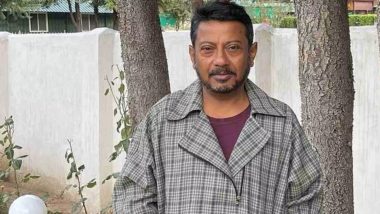Filmmaker Onir has expressed his disappointment at the verdict pronounced on Tuesday by the Supreme Court of India which refused to legalise same-sex marriages. "DISAAPOINTED .... The cis gendered world FAILED to be better humans," Onir tweeted soon after the judgement by a five-judge Constitution bench headed by Chief Justice of India DY Chandrachud. The filmmaker, who has explored same-sex relationships in My Brother Nikhil and Pine Cone also posted on the X app "What a shame." The apex court has in a majority verdict ruled that for LGBTQIA+ couples there is no unqualified right to marriage and that conferring legal status to a civil union can only be through enacted law. "I think that the Supreme Court's verdict has come, but it has been highly disappointing because, since the beginning, a lot of positive things were discussed. The court said that the government should take this decision and support it, however, the decision has been given into the hands of the Parliament," Onir told ANI after the apex court's verdict. Pine Cone: The First Poster for Onir’s Highly Anticipated Film Has Been Revealed.
"In 2018, the Supreme Court took the decision, and it was a positive decision because the court takes the decision considering human rights" the filmmaker said. "The struggle that is already going on will continue with the hope that we will get justice very soon. There was a lot of hope this time but unfortunately, it couldn't happen in our favour," Onir said. "I would like to ask the government that this is a human rights issue, and no culture, no religion, no tradition is above human rights, and why there is a debate over the happiness of a community."
A Constitution bench comprising Chief Justice of India DY Chandrachud, Justices Sanjay Kishan Kaul, S Ravindra Bhat, Hima Kohli and PS Narasimha delivered the verdict it had reserved on May 11 this year.
View Twitter Post:
It’s almost feels like Today did NOT HAPPEN . I am going to erase Today https://t.co/kOszOC8vDn
— iamOnir (@IamOnir) October 17, 2023
The court, however, said the judgement will not preclude the right of Queer persons to enter into relationships. The apex court also said that the challenge to Special Marriage Act (SMA) on the ground of under-classification is not made out.Justice Ravindra Bhat, Justice Narasimha and Justice Hima Kohli were in agreement on these positions, while CJI Chandrachud and Justice Sanjay Kishan Kaul took divergent positions. In his judgement the CJI passed directions that the Union government and State governments must ensure there is no discrimination against the Queer community. The CJI said it should be ensured that there is no discrimination in access to goods and services to the queer community. There is a need to sensitise public about queer rights. The Union and state Governments must create a hotline for queer community to prevent harassment. The government must create safe houses for queer couple. Government also must ensure inter-sex children are not forced to undergo operations. Filmmaker Onir Tweets His Disappointment After Organisers Allegedly Cancel His Event Over Threats of Protests and Violence.
The CJI said that it should be ensured that no person shall be forced to undergo any hormonal therapy. There shall be no harassment to queer community by summoning them to police station solely to enquire about their sexual identity.
The CJI directed the Union Government to constitute a committee to decide the rights and entitlements of persons in queer unions. The Constitution bench had begun the hearing on the matter on April 18 and the hearing went on for nearly 10 days. The court had clarified that it will deal with the issue under the provisions of the Special Marriage Act and will not touch the personal laws on this aspect.
The Centre has opposed the plea and said that parliament and not the court, should consider the issue. The Centre called it an Urban elite concept but the court did not agree During the hearing the Centre had agreed to examine issues relating to giving some certain rights to LGBTQIA + but opposed legal recognition to the same-sex couple.













 Quickly
Quickly


